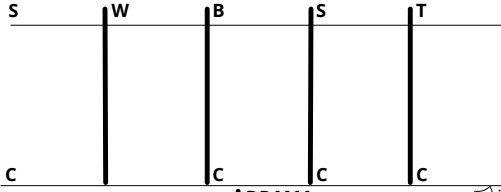First hand accounts of events such as, diaries, letters, or oral histories.
Primary Source
DOUBLE POINTS
What is a SCR? How much do you write? How do you start your first sentence? What else do you include?
Short Constructed Response
2-3 sentences, R.A.C.E
Use as many words from the question to start your first sentence, then answer it.
YOU MUST INCLUDE EVIDENCE/QUOTE
If a question asks, "What is paragraph 5 mainly about?" What is it asking for?
Main idea
Fiction
Tells a story and has a plot
What is Ms. McKnight's favorite animal?
Otter
Purpose for writing nonfiction
Inform or Persuade
First step when reading a poem
Analyze the Title
Usually who we consider to be the "good guy" in a story
Protagonist
The central argument or claim an author or speaker is trying to convince their audience to agree with or believe.
Premise
Events told in a specific order
Sequential
If a question has "Write a well-organized..." you know this will be what?
ECR (extended constructed response). "Write a well-organized" should be your hint that this will be your essay prompt.
Sticks to the main points, not too many details, no fluff
Summary
Narrator tells the events only (He, She, They)
3rd Person Objective
What is Ms. McKnight's favorite drink?
Dr. Pepper
Represent two types of text structures

Spatial and Description
Read at least
Three times
Usually in parentheses () or italicized. This allows the reader to visualize the setting or aspects of a story not expressed through dialogue
Staging
Two contradictory terms used side-by-side to describe something.
Oxymoron
Information is organized by listing information based on importance.
Order of Importance
TRIPLE POINTS
What is an ECR? How much should you write? How do you start? What do you HAVE to include?
Extended Constructed Response
4 paragraphs (introduction, body 1, body 2, and conclusion)
Use as many words from the prompt to start your first sentence.
Include TEXT EVIDENCE/QUOTE
This question: The reader can conclude that ... Is asking the reader to what?
Make an inference
Character
Anything with thoughts and feelings and interacts with others
What is the name of at least 1 of Ms. McKnight's dogs.
Peeta
Aspyn
Lilli
Probably true, cannot be proven, not measurable
Commonplace Assertion
How the author comes across in a text(poem)
Tone
The events of the story are told in the order they occurred in time.
(exposition, rising action, climax, falling action, conclusion)
Linear Plot Development
A short and concise statements of general truth.
Aphorism
To restate each idea presented in a text using your own words.
Paraphrase
A complete sentence is made up of..
Proper Capitalization
Proper Punctuation
A complete thought
Has a subject and a verb
One strategy for answering vocabulary context clue questions is
Read the text surrounding the word for hints about its meaning
Summary

Somebody - Character
Wanted - Motivation
But - Conflict
So - Climax
Then - Conclusion
What month is Ms. McKnight's birthday?
June
Claims not based on sound reasoning, misleading
Logical Fallacies
The feeling a reader gets while reading a text(poem)
Mood
The events of the story are not revealed to the reader in the order they occurred in time.
Nonlinear Plot Development
When the author or speaker avoids the main argument by presenting related but irrelevant points.
Red Herring
Information is organized by describing a space. Describes what a space looks like.
Spatial
In SCR and ECR questions you must.
Use evidence from the text to support your answer.
Have complete sentences.
Be organized in you writing.
The moral of a story, or the life lesson the author wants the reader to understand
Theme
Nonlinear Plot Elements
Foreshadowing
Flashbacks
In Medias Res
What is Ms. McKnight's favorite class period?
7th Period
A fallacy that attempts to get an emotional reaction from the audience
Emotional Appeals
Has a rhyme scheme of AABBA
Limerick
A type of monologue when a character speaks their thoughts aloud TO THEMSLEVES AND ONLY THE AUDIENCE CAN HEAR. This creates dramatic irony because the audience knows more than the other characters.
Soliloquy
When authors or speakers make claims in which a conclusion is made that is not based on logical reasoning. When we stop and think about their reasoning, it does not logically (or thoughtfully) make sense.
Logical Fallacies